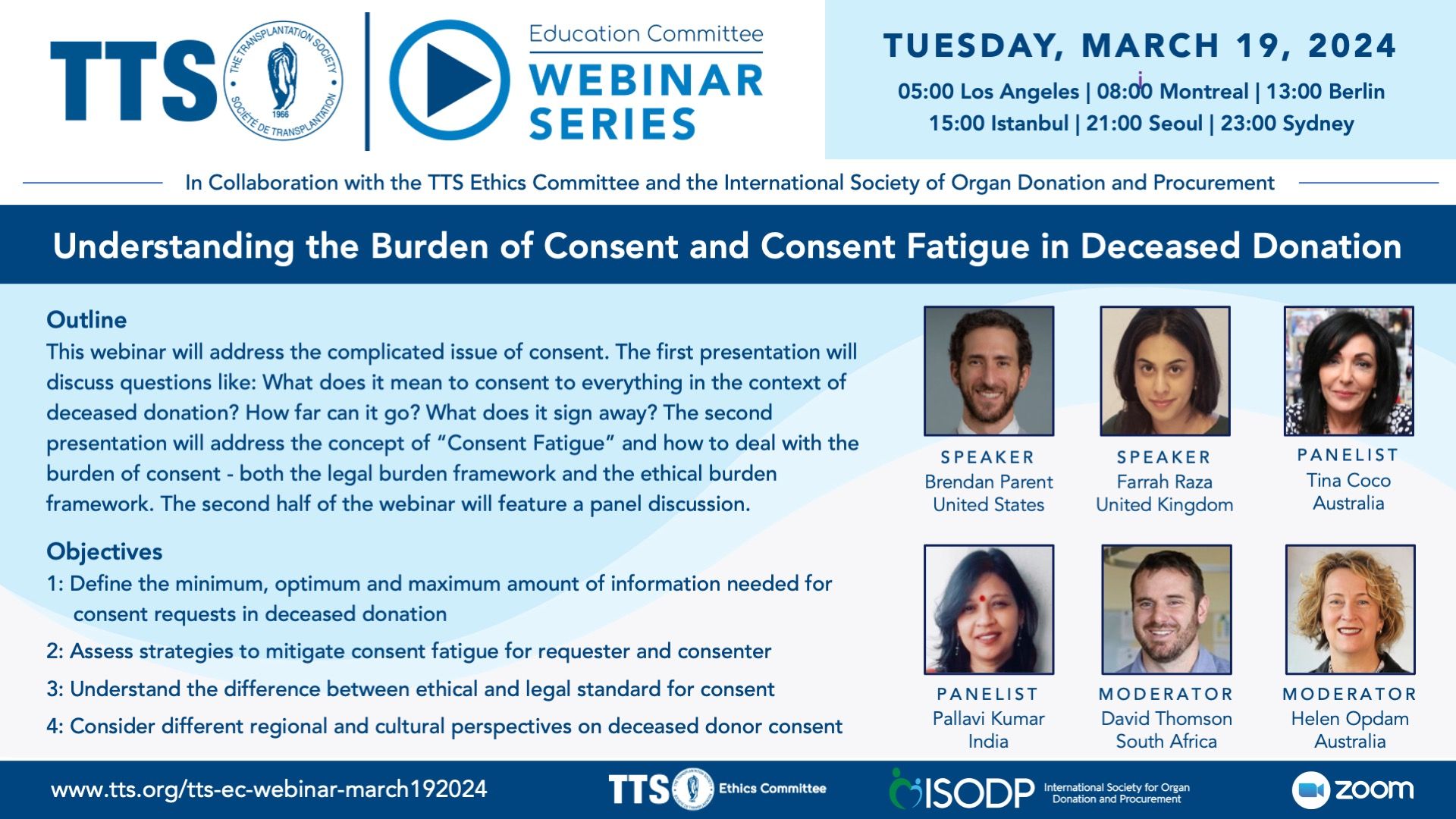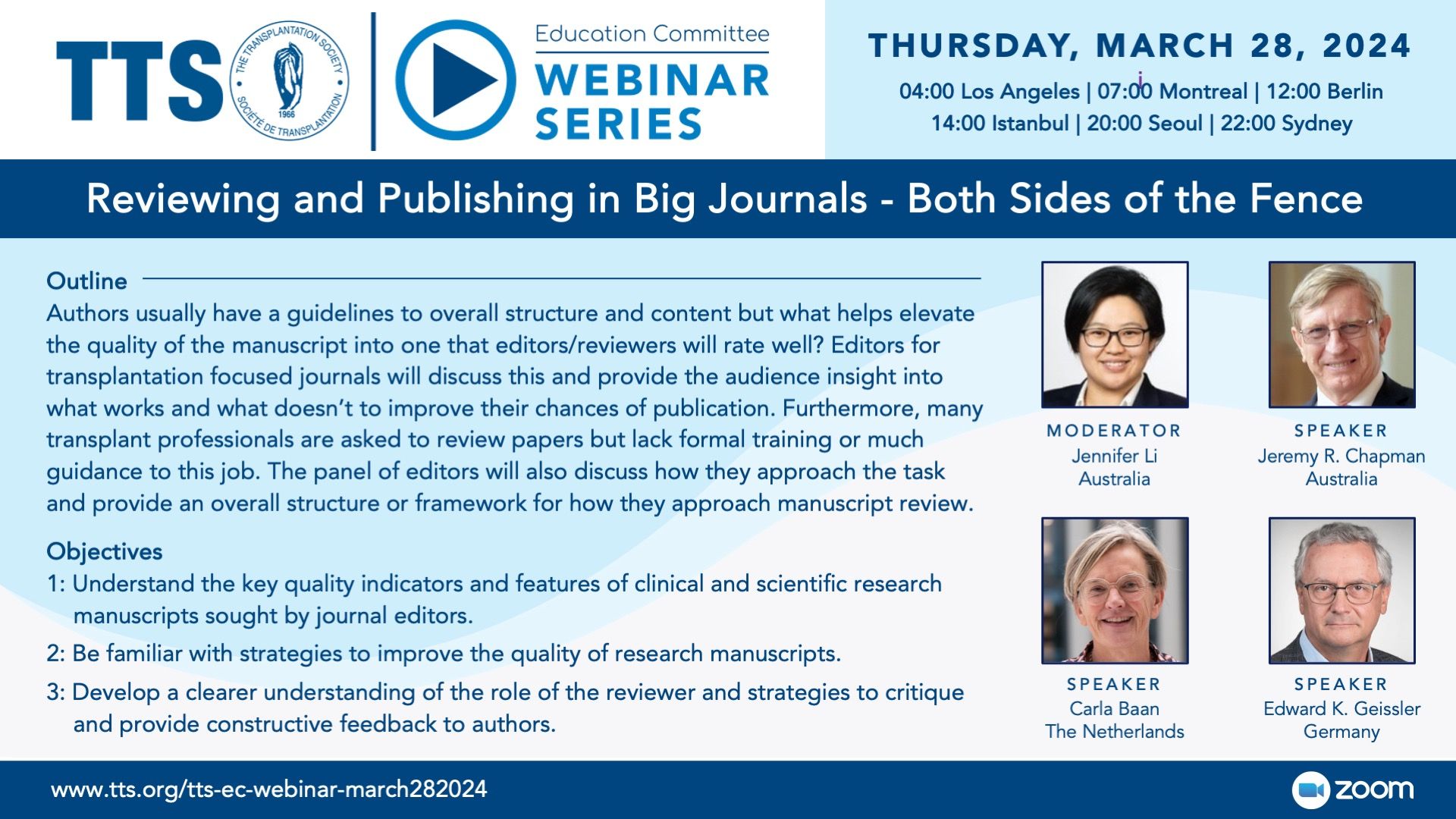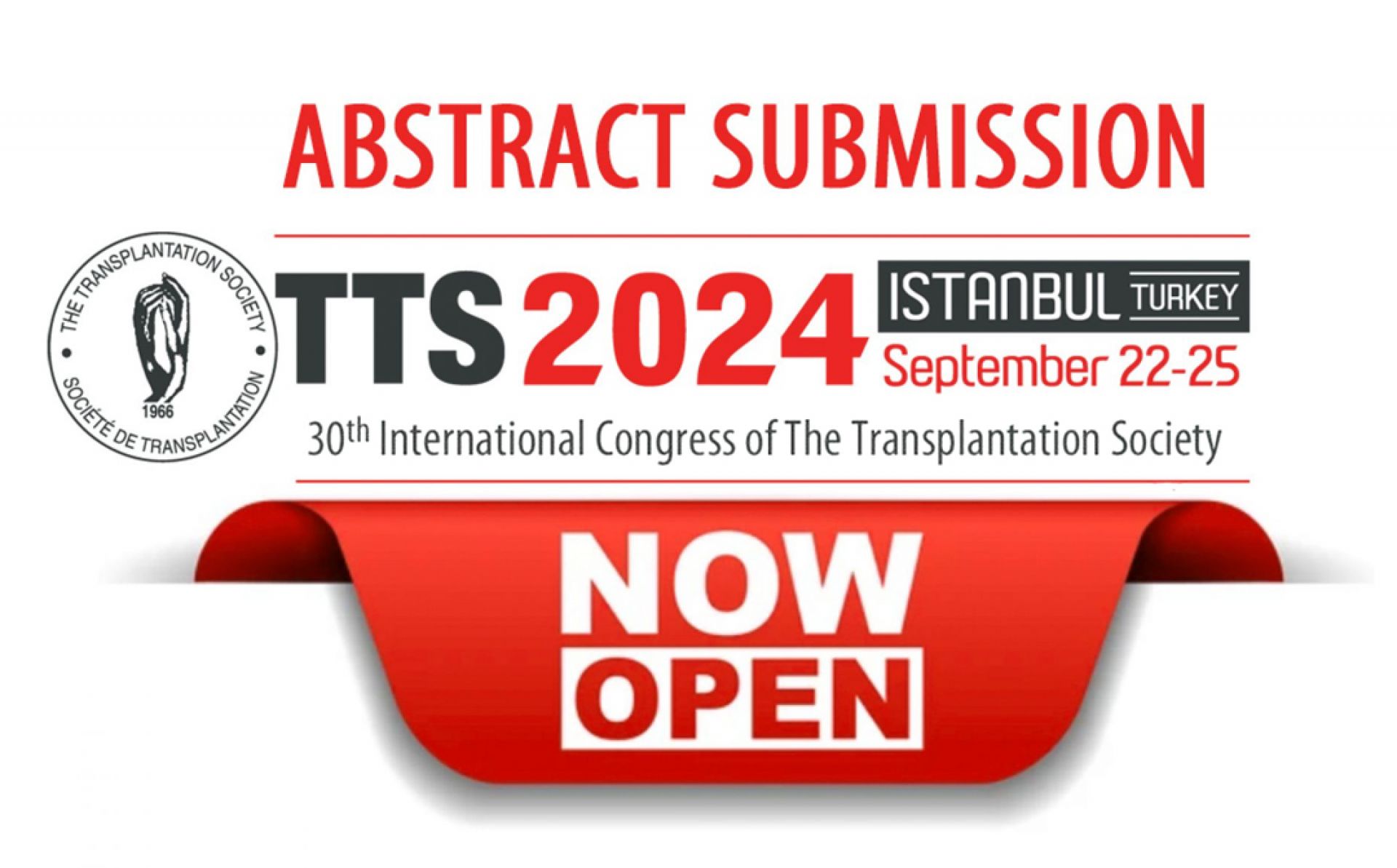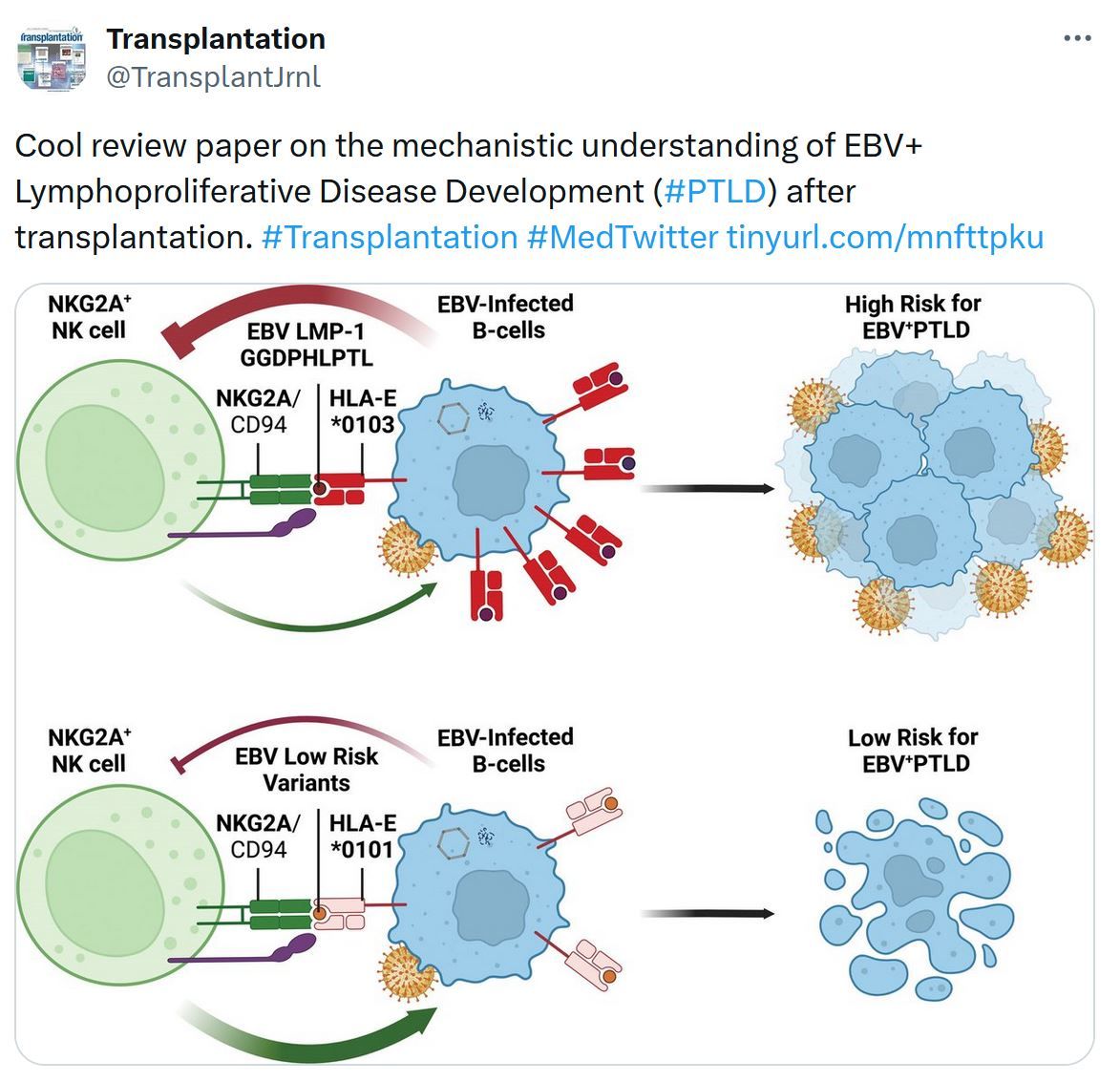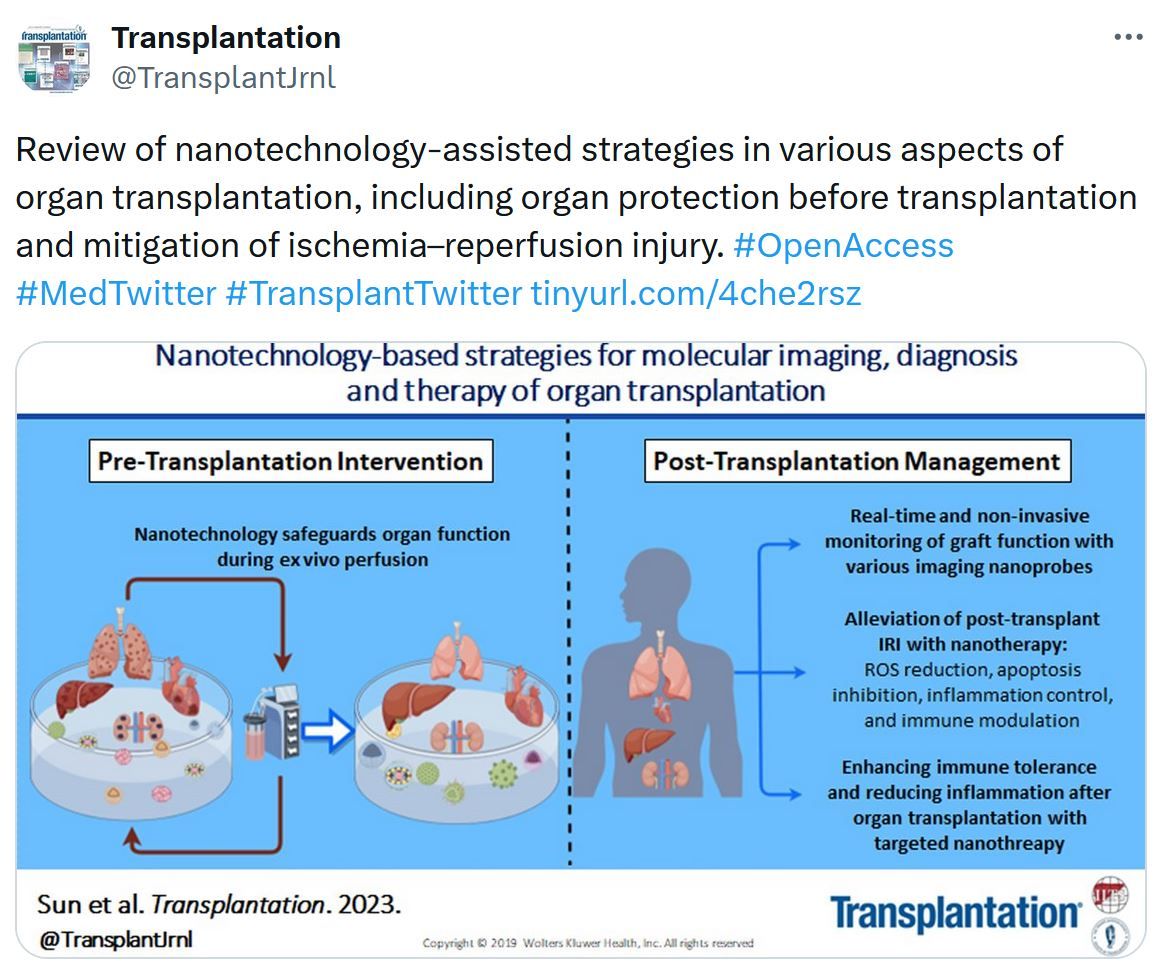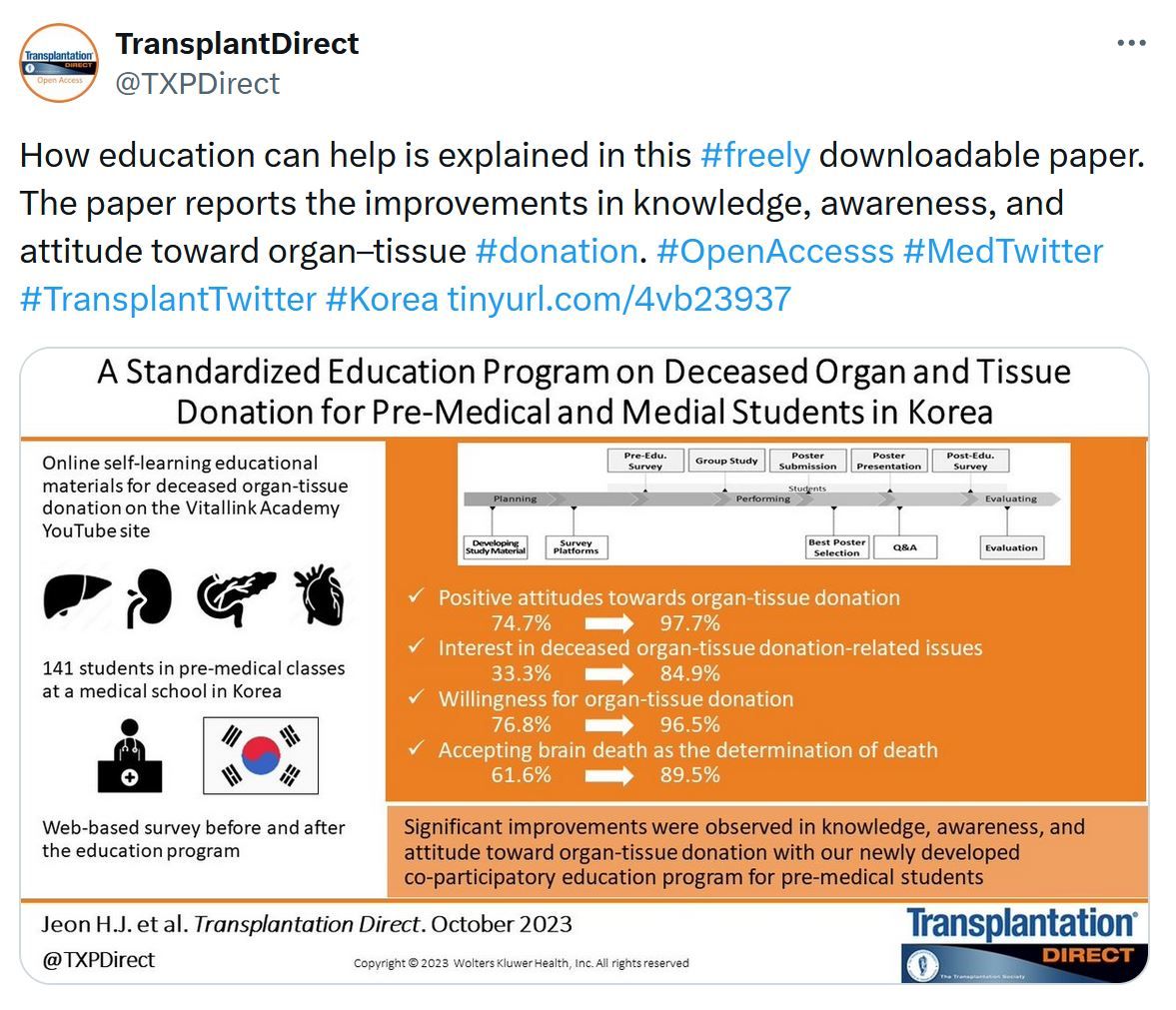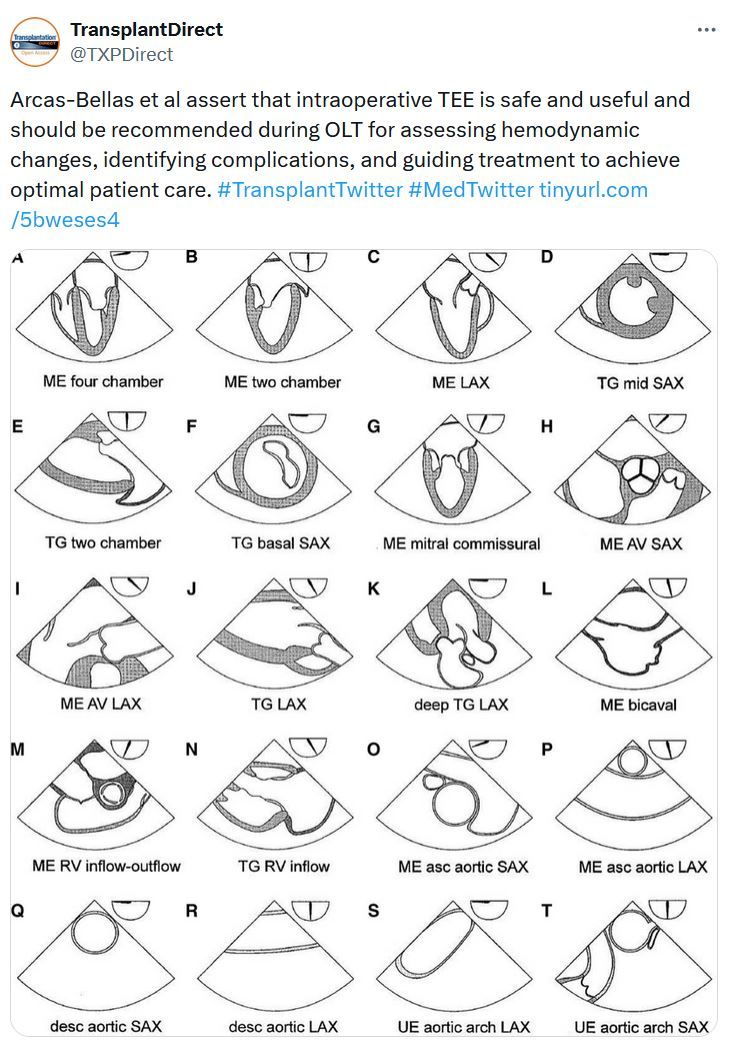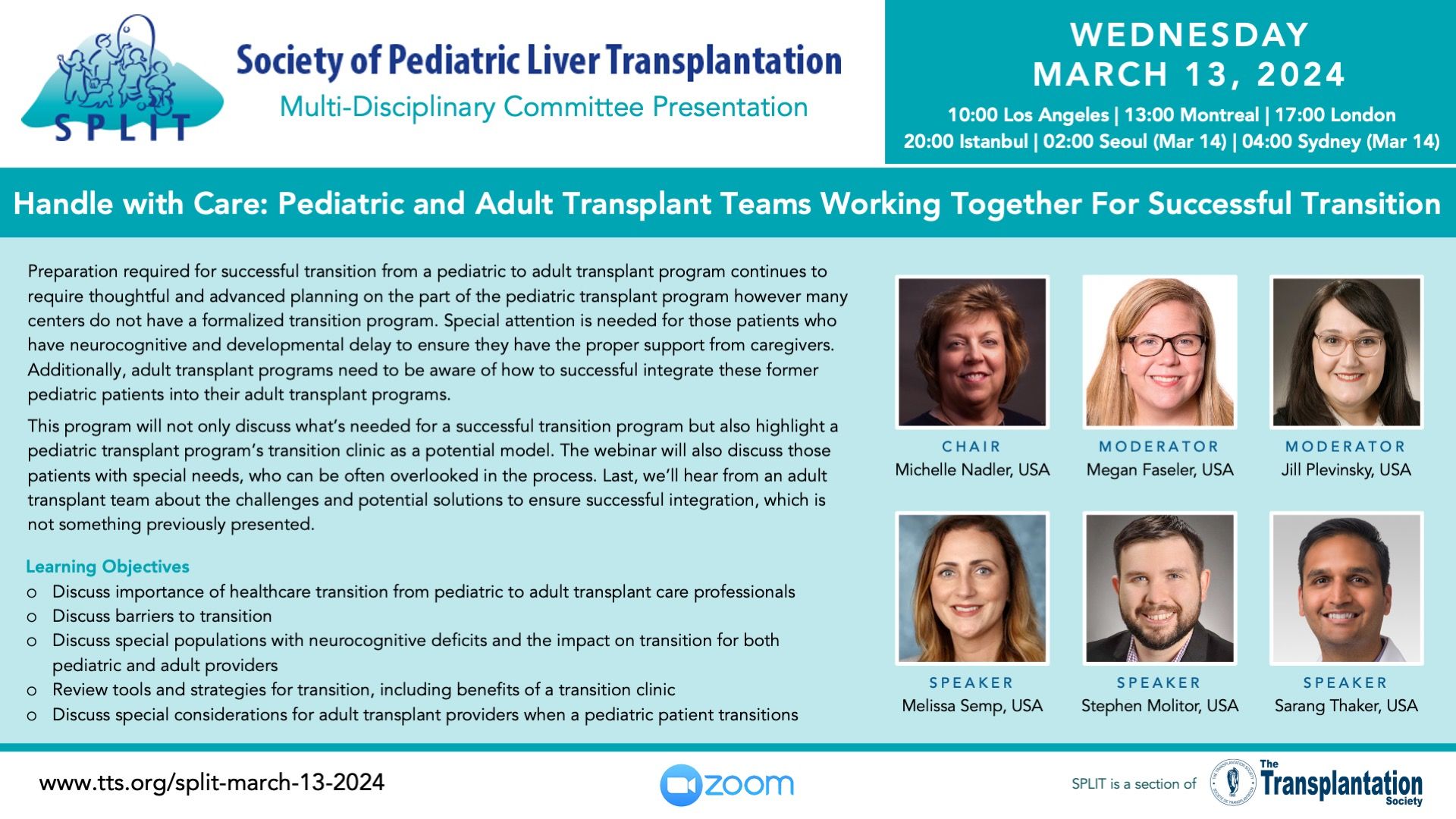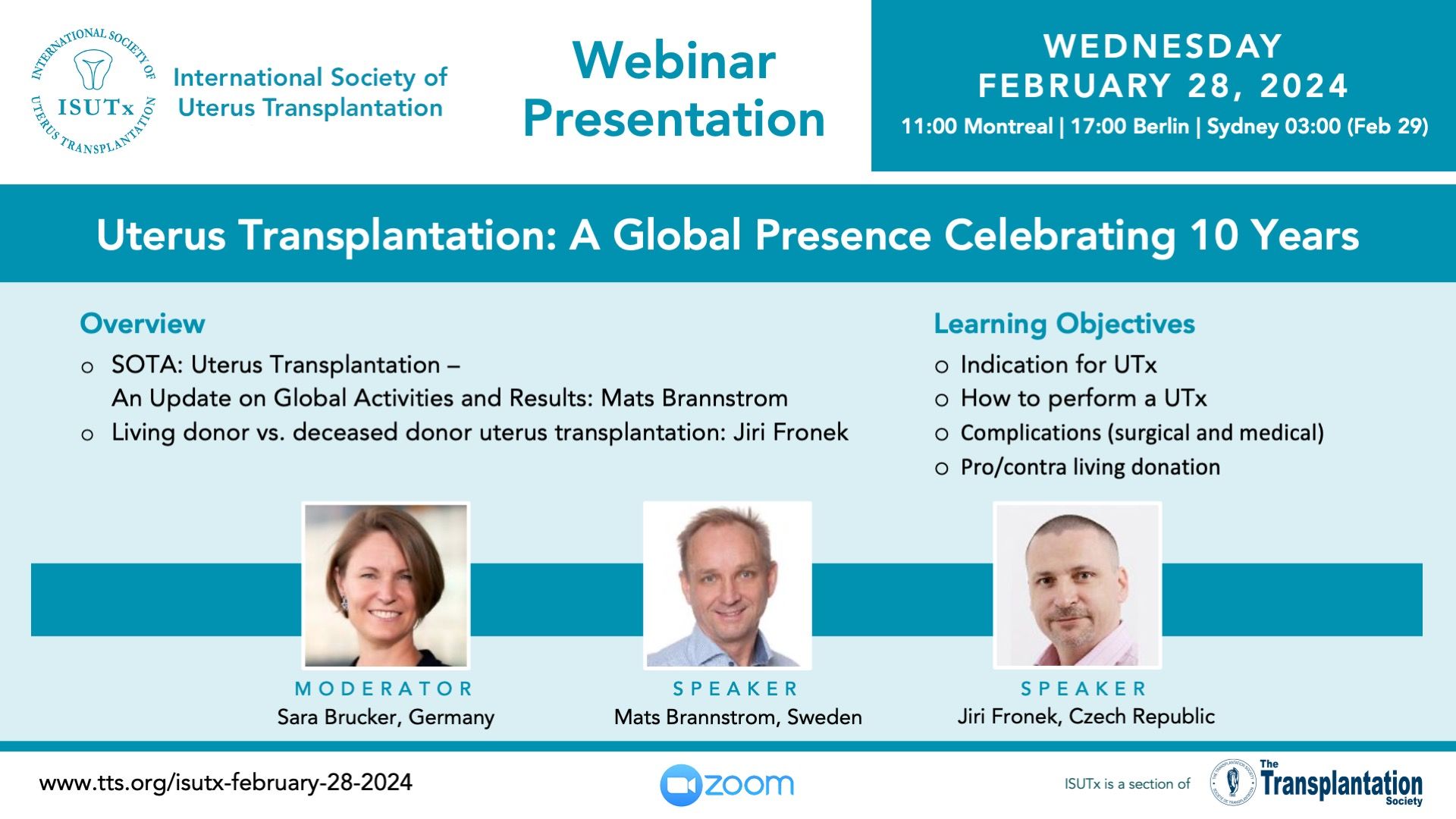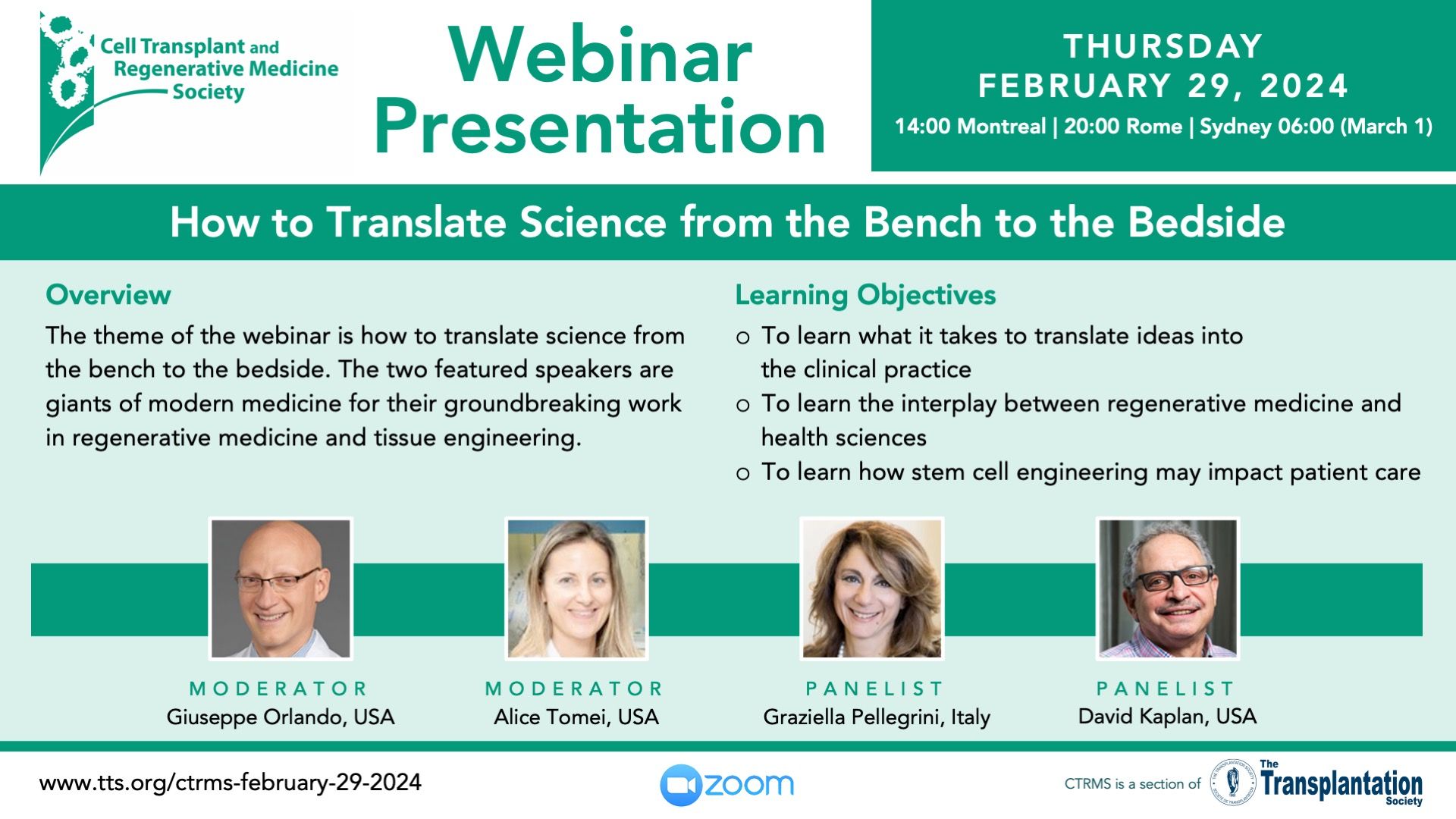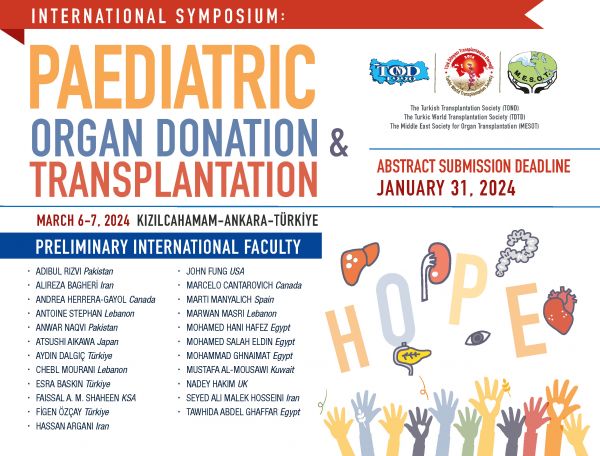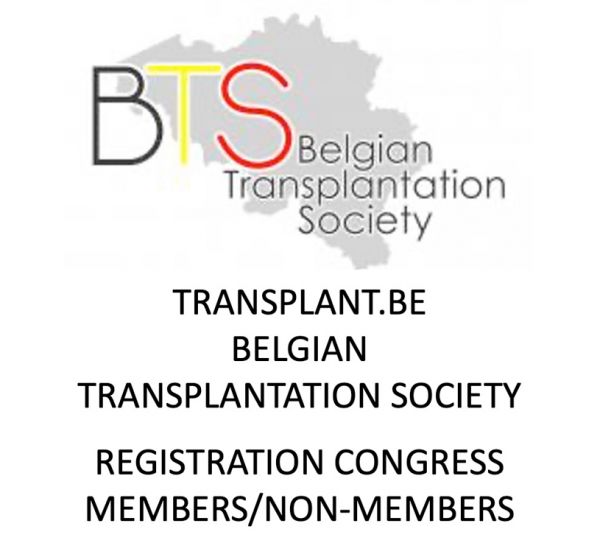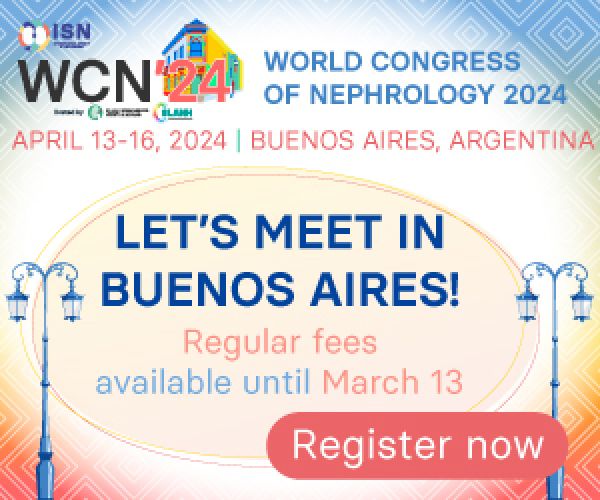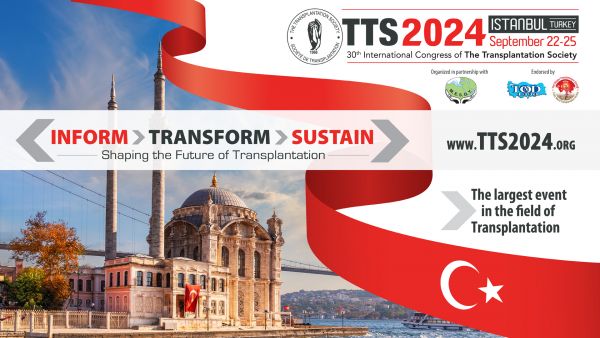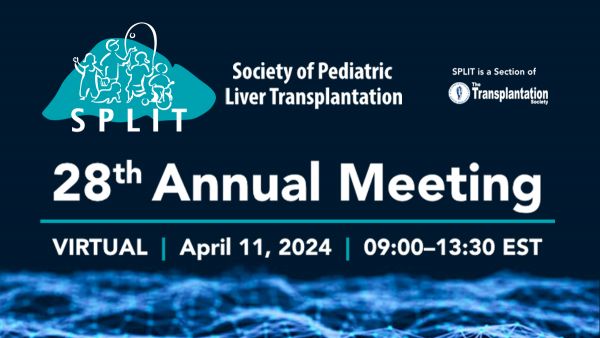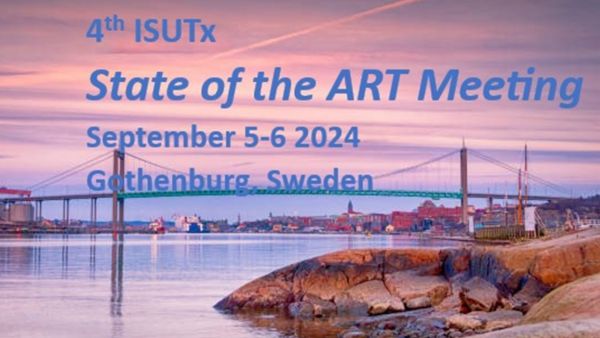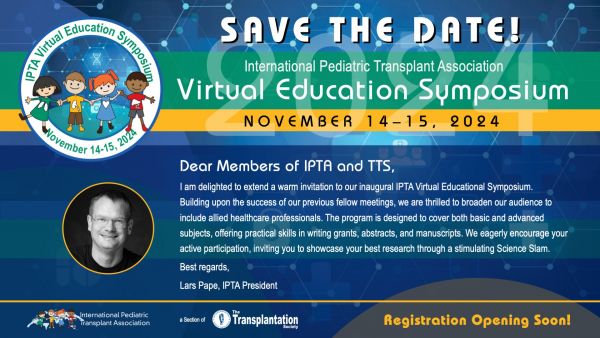
2024 Education Committee Webinar Series
In collaboration with the various Committees and Sections of the Society, the Education Committee is proud to present a series of educational webinars that have been specially designed for the whole TTS membership. The series has been carefully curated with the aim of addressing a wide range of topics, and drawing on diverse expertise and perspectives from around the world. Covering ethical controversies, cutting edge science, and fundamental challenges in policy-making and clinical care for transplant recipients and donors, we hope the program will provide valuable and engaging opportunities for all members to advance their knowledge and skills.
TTS 2024 - Abstract Deadline is less then 3 weeks away!
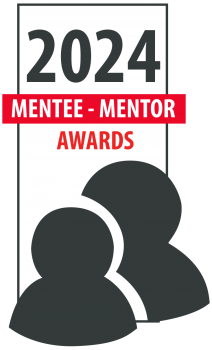
2024 Mentee-Mentor Awards
The Transplantation Society, in collaboration with National and International Societies acknowledges the contribution of basic science to the field of transplantation by offering Mentee-Mentor awards.
International Basic and Translational Science Mentee-Mentor Awards
TTS-ISOT La Renon International Basic and clinical sciences Mentee-Mentor Awards
Award Application Deadline: April 26, 2024
In Case You Missed It - Recent Recordings
Meeting News
Contact
Address
The Transplantation Society
International Headquarters
740 Notre-Dame Ouest
Suite 1245
Montréal, QC, H3C 3X6
Canada
Используйте Вавада казино для игры с бонусом — активируйте промокод и начните выигрывать уже сегодня!


